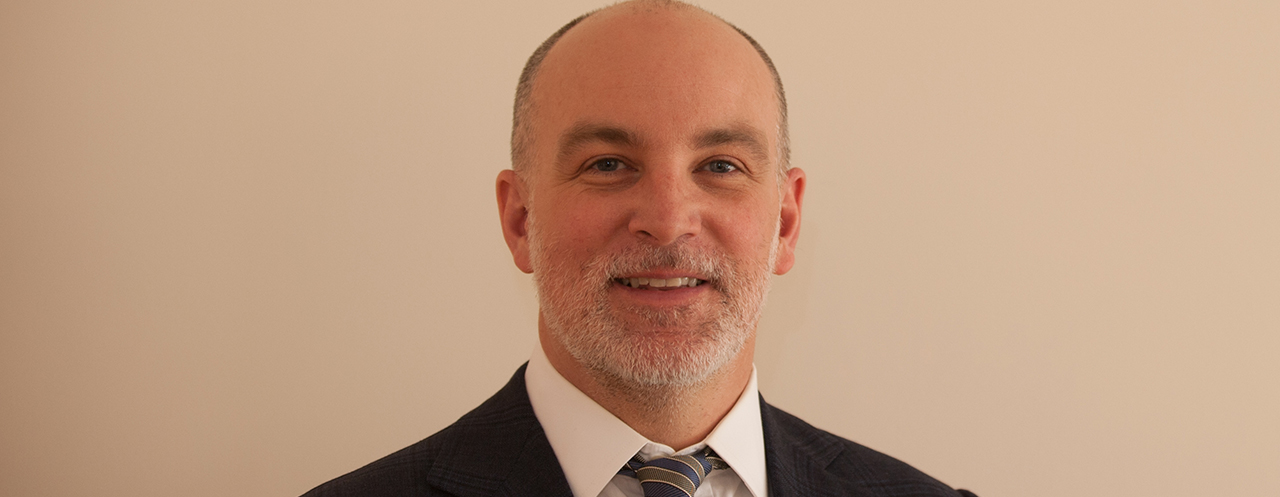We’re happy to feature a long-time user of Trading Technologies software in this edition of our “5 Questions with…” blog series. Kevin Muir has used TT on three fronts: as an institutional sell-side broker, as a prop trader managing his own account and now as a fund manager.
Kevin is the author of The MacroTourist blog. His tagline is “all I bring to the party is 25 years of mistakes,” and he offers a different take on financial newsletter writing by presenting it in a fun and unique style.
Kevin used to be an institutional equity derivatives trader, but spent the past couple of decades trading his own account. Deciding it was finally time to go back to work, he recently joined East West Investment Management, where he is the market strategist and associate portfolio manager for the Global Select Opportunities Fund.
You can follow Kevin on Twitter at @KevinMuir or contact him directly at kevin.muir@eastwestfunds.com.
How did you get started in trading?
Kevin: Growing up, my father was the research director at a Canadian securities dealer, so there was always a lot of stock talk at the dinner table. I knew I wanted to be a trader from an early age. During university, I took a job at a discount stock broker answering calls at night. Then, after a brief stint on the floor in Chicago, I realized my computer skills and love of trading were a great fit for the institutional equity market that was commencing a technological transformation from old-school floor-based trading to electronic-access execution. I got a job at RBC Capital Markets, and within a couple of years, I was the equity index derivative trader. I was responsible for providing liquidity to institutional clients who wanted to trade in index products. My partner on the floor and I also executed index arbitrage, keeping the futures market in line with the cash index.
Is there a particular market event that you can reflect on?
Kevin: At the bank, I was responsible for a lot of risk at a young age. Some of that was because you needed a decent set of computer skills to lay off the risk in the index market, but it was also a different era when proprietary trading was embraced. I remember my first serious market dislocation. It was during the 1998 Long-Term Capital Management crisis. In the early summer swoon, implied volatilities were bid up, and we took the opportunity to sell a lot of options at elevated levels. Then, in late August, the market gapped down. Liquidity disappeared. The selling accelerated. Our gamma started to really kick in. Our delta was growing with every frantic tick lower. At one point, the entire market just seemed to go no bid. We couldn’t sell anything. We turned off the computer screens and stopped looking at our increasingly large long delta position. It was a big loss, and it scared the stuffing out of me. The realization that there was a point where you were bigger than the market and couldn’t get out was a completely new phenomenon for me.
What advice would you provide to someone who wants to start a trading career today?
Kevin: Read, read, read. Then read some more. There is so much trading knowledge out there just waiting for the beginning trader to discover. Back when I started, there were a few trading books like Reminiscences of a Stock Operator and Market Wizards, but by and large, trading knowledge was passed down person to person. I was lucky to sit on a great institutional trading desk where I got to learn from some really shrewd risk takers, but nowadays anyone can read and learn from hundreds of legendary traders who have chronicled their experiences.
How do you take advantage of social media to enhance your trading and business?
Kevin: When I first tried Twitter, it was like trying to drink from a fire hose. The information came so fast and seemed uncontrollable. Once I realized that I needed to change the way I thought about the medium, it quickly became one of my favorite trading tools. I view Twitter as essential for the modern trader. It’s like an electronic live feed from the world’s largest trading desk. I would encourage any trader that isn’t using Twitter to have another look. The information flow and the opportunities to engage with other traders are terrific resources.
As a long-time user of Trading Technologies software, how as TT helped you build your career?
Kevin: The Toronto Stock Exchange was one of the first electronic exchanges in the world, so I have been using electronic order access since the start of my career almost three decades ago. When I looked at the different futures order-entry systems, the TT system was immediately my hands-down favorite. It seemed designed by traders, for traders. Over the years as I have used the automated features, I have been continually delighted at how those same qualities ring through the whole product suite. For me, TT is essential to doing what I love best–trading.
